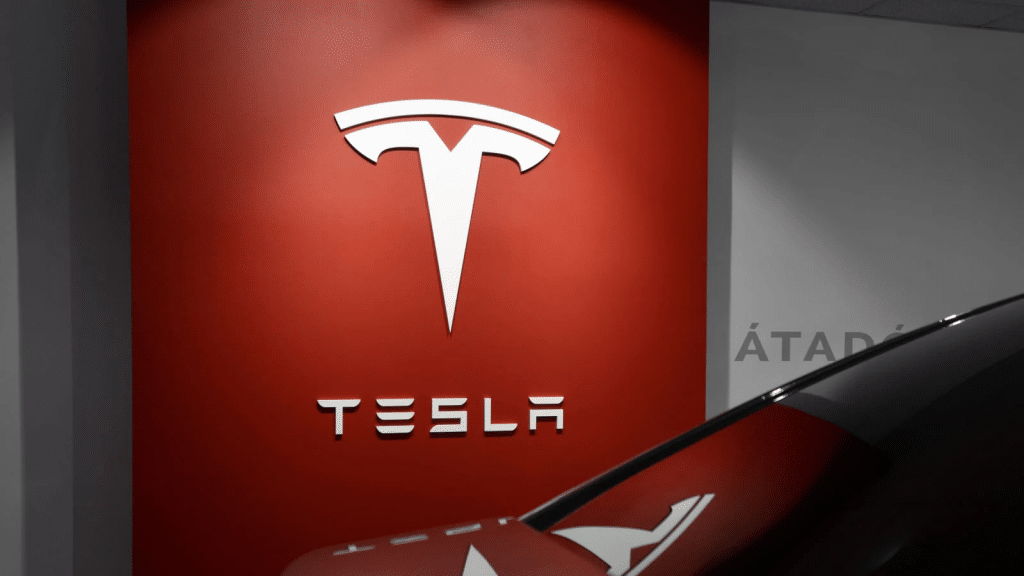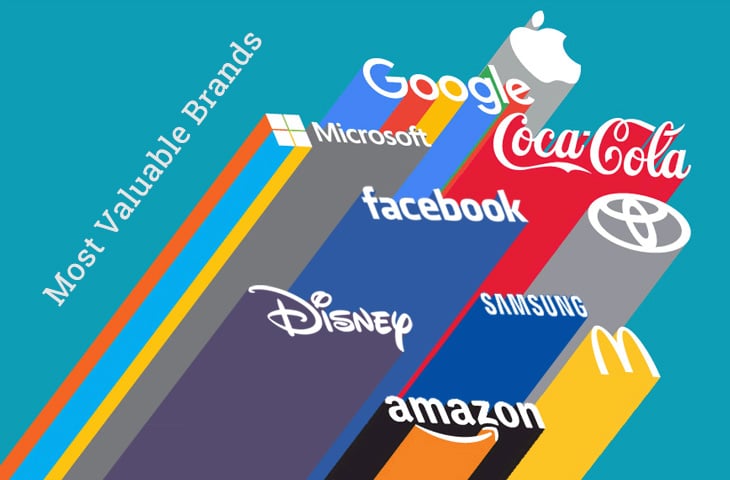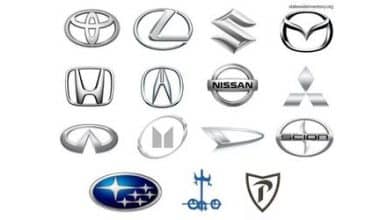When I think of the most valuable brands in 2024, I can’t help but notice how well they’ve integrated themselves into our daily lives. You recognize these names: the phone in your hand, the sneakers on your feet, or the software that runs your business. But what distinguishes these brands as the most valuable in the world? It is about how these companies connect with us on a human and emotional level, not just their product lines or market capitalization. Of course, there’s the business side—innovation, consistency, and billions of dollars in brand value that keep them at the top.
Let’s take a deep dive into the most valuable brands of 2024, uncovering the surprising causes for their success.
The Most Valuable Brands in the World In 2024
Here are the most valuable brands in the world in 2024:
- Apple
- Amazon
- Microsoft
- Samsung
- Tesla
- Coca-Cola
- Toyota
- Nike
- Disney
#1. Apple

Apple’s $3 trillion market capitalization stems not just from its best-selling products—iPhone, iPad, and Mac computers—but also from its combination of hardware, software, and services to provide a seamless user experience.
Apple’s services industry has emerged as a significant revenue driver, expected to generate more than $90 billion by 2024. This includes Apple Music, iCloud storage, the App Store, and Apple Pay, as well as its expanding health tech portfolio, which includes the Apple Watch and HealthKit platform, which are now critical in healthcare data management and fitness. The M1 chip for Mac and advancements in augmented reality (AR) technology, which lay the groundwork for future growth in industries other than consumer electronics, are just a couple of the cutting-edge innovations that Apple continues to release, further enhancing its brand value.
#2. Amazon

With a brand worth more than $1.5 trillion, Amazon continues to dominate many industries. What began as an online marketplace has expanded into a multidimensional empire including e-commerce, cloud computing, logistics, artificial intelligence, and entertainment. AWS (Amazon Web Services) is the foundation of many digital infrastructures worldwide, accounting for a sizable percentage of Amazon’s revenue.
Amazon’s rapidly developing advertising operation, which is expected to produce more than $50 billion in 2024, will be a prominent competitor in the digital advertising industry, competing with Google and Facebook. Furthermore, Amazon’s investment in AI-powered logistics and automation of warehouse operations distinguishes the company as a pioneer in operational efficiency. Amazon Prime has also transformed customer expectations, fostering brand loyalty through speedy shipping, unique content, and membership benefits.
#3. Microsoft

Microsoft’s brand worth exceeds $2 trillion, and its continual change has consolidated its leadership in cloud computing, software, and artificial intelligence. One of Microsoft’s fastest-growing businesses is its Azure cloud platform, which now accounts for a significant amount of the company’s income. Azure’s powerful AI and machine learning capabilities are employed in areas such as healthcare, banking, and manufacturing, in addition to technology companies.
Microsoft’s AI initiative has incorporated machine learning into routine business processes, as seen in technologies like Azure AI and Microsoft Power Platform, enabling businesses to automate and streamline operations. Furthermore, Microsoft’s Office suite, now known as Microsoft 365, has transitioned from a one-time purchase to a subscription model, resulting in consistent recurring revenue. Its acquisitions, like LinkedIn and GitHub, broaden its business and strengthen its ecosystem.
#4. Alphabet (Google)

Alphabet, Google’s parent company, is valued at over $1.4 trillion, owing to its dominance in search and digital advertising, with Google Ads serving as the largest platform for marketers globally. Google’s digital ad revenue alone is worth billions of dollars per year, but what’s less discussed is its progress in AI and quantum computing, particularly through projects like DeepMind and its Quantum AI business. These innovations are poised to transform industries ranging from healthcare diagnostics to energy.
Google Cloud has also achieved significant market share, rivaling Amazon and Microsoft. The company’s diversification strategy includes hardware goods such as Google Pixel smartphones, Nest smart home gadgets, and the Android operating system, which powers more than 70% of smartphones globally. The combination of hardware and services in Google’s ecosystem prepares it for ongoing growth.
#5. Samsung

With a brand worth of more than $450 billion, Samsung is best known for its consumer electronics, particularly Galaxy smartphones, but it is also a global leader in semiconductors—an industry critical to everything from cellphones to electric vehicles. Samsung is the world’s largest memory chip manufacturer, an often-overlooked segment of the business that contributes significantly to its revenue.
Samsung’s efforts in 5G technology and foldable smartphones have propelled it to the forefront of innovation. Its influence on the larger tech industry is evident in its leadership in display technology, particularly in the use of OLED displays by many other smartphone makers, including Apple. Samsung’s diversification into artificial intelligence and the Internet of Things (IoT) positions it as a prominent player in future-focused technology.
#6. Tesla

Tesla’s market valuation of more than $800 billion stems from its leadership in electric vehicles (EVs) and renewable energy solutions. Tesla’s vehicles, particularly the Model S, 3, X, and Y, have become emblematic of the electric automobile revolution. Many people don’t realize that Tesla is also leading the renewable energy push with its solar panels and Powerwall batteries, making it a key player in sustainable energy.
Tesla’s Gigafactories, which manufacture lithium-ion batteries, are critical to the company’s operations, cutting production costs and expanding battery supply for both EVs and energy storage. Tesla’s development of self-driving software positions it at the forefront of mobility innovation, cementing its reputation as more than just a car manufacturer—Tesla is a technology business transforming industries.
#7. Coca-Cola

Coca-Cola continues to be the world’s most iconic beverage company, with a brand worth around $250 billion. Coca-Cola’s portfolio comprises not only its namesake beverage, but also popular brands such as Sprite, Fanta, Dasani, and Smartwater. Their innovation goes beyond sugary drinks, with considerable investments in health-conscious options such as zero-sugar beverages and water-enhanced drinks.
Coca-Cola’s huge distribution network enables it to reach over 200 nations, and its sponsorship of key global events such as the Olympics has solidified its position in both pop culture and global sports. The company’s brand power stems from its unusual ability to localize products—offering region-specific tastes and drinks in Nigeria, such as Fanta Apple and Blackcurrant.
#8. Toyota

Toyota’s brand worth of over $300 billion is primarily owing to its reputation for dependability and early leadership in hybrid technology, particularly with the Prius. Toyota is now developing hydrogen fuel cell vehicles, such as the Mirai, as part of its efforts to attain carbon neutrality.
What is less well recognized is Toyota’s superiority in robotics and automation, two disciplines in which it has quietly invested for years to enhance manufacturing efficiency and build future autonomous automobiles. Toyota’s global reach extends beyond passenger automobiles, with a substantial presence in the heavy truck and industrial equipment industries. The company’s emphasis on sustainability and future transportation, which includes electric and hydrogen-powered vehicles, lays the groundwork for long-term success.
#9. Nike

Nike, valued at over $250 billion, controls the worldwide sportswear market through its inventive product and marketing strategies. Beyond shoes and clothes, Nike has embraced digital transformation by creating cutting-edge wearable technology such as the Nike+ app, which syncs with Apple HealthKit and provides individualized training programs.
Nike’s ties with athletes, entertainers, and designers help to maintain its cultural relevance. What is frequently forgotten is Nike’s dedication to sustainability, particularly their Move to Zero project, which aims to create zero-carbon and zero-waste products. Nike is more than simply a shoe company; it is a lifestyle brand influencing global pop culture.
#10. Disney

With a brand worth more than $200 billion, Disney is synonymous with entertainment, storytelling, and magical experiences. While Disney’s theme parks and iconic characters, such as Mickey Mouse, are well-known, its Marvel, Lucasfilm, and 20th Century Fox purchases have established it as a content powerhouse. Disney’s streaming network, Disney+, has become a major growth driver, with over 150 million users expected by 2024. What is less well addressed is Disney’s impact on worldwide pop culture, which has shaped childhoods, family entertainment, and even fashion through its massive merchandising empire. Disney’s long-standing ties with companies such as Mattel and Hasbro ensure that its characters are always visible in the lives of children and families worldwide.
These are the world’s most valuable brands, with each setting the standard for innovation and commercial influence in their respective industries.
Other Major Brands You Should Know
#1. Meta (Facebook)
Meta’s brand value, which remains strong at more than $600 billion, is evolving as the firm focuses on the Metaverse. While social platforms such as Facebook, Instagram, and WhatsApp continue to dominate, the Metaverse approach is Meta’s next big gamble. Meta’s effect on VR/AR technology is paving the way for a new digital landscape.
#2. Walmart
With a brand value of $415 billion, Walmart is still the retail leader. Many people are unaware of the company’s significant investment in e-commerce. Walmart+ is the company’s response to Amazon Prime, and the company’s major focus on technological advancements in logistics and supply chain management is altering the retail industry.
#3. Coca-Cola
The Coca-Cola brand, valued at $80 billion, offers more than just sugary drinks. The company has expanded its offerings to include water, health drinks, and wellness beverages. Coca-Cola’s engagement in sustainability, particularly in recycled packaging, is a lesser-known story.
#4. Samsung
With a brand value of nearly $510 billion, Samsung is commonly associated with smartphones and electronics. However, its supremacy in semiconductors and displays contributes significantly to its worldwide influence. In 2024, Samsung’s technology will power everything from smartphones to AI-powered products in homes throughout the world.
#5. Visa
Valued at nearly $500 billion, Visa is the global leader in digital payments. What’s often overlooked is its foray into cryptocurrency and blockchain technology, which positions it for the future of finance. Visa’s contribution to protecting digital payments across e-commerce platforms keeps the world running smoothly.
What typically distinguishes these brands from their competitors is not just market capitalization, but their ecosystems. Companies such as Apple, Microsoft, and Amazon have created platforms that keep customers engaged, whether through subscription services, cloud platforms, or data-based algorithms. These companies are more than just brands; they are ecosystems that touch every part of modern life, guaranteeing that their worth continues to grow.
Template for Increasing Brand Value
One of the most difficult issues many organizations face today is sustaining customer loyalty while growing. Our brand-building template can assist you in developing a unified plan for increasing the value of your brand, ensuring that you are providing more than simply a product, but an integrated experience that keeps people coming back.
Brand-Building Template
Key Takeaways
- Apple’s services division is a large, little-discussed growth engine that generates billions of dollars per year.
- Amazon’s advertising business is a secret powerhouse that changes how companies promote to customers.
- Google’s AI ventures, such as DeepMind, are pushing the boundaries in healthcare and beyond.
- Microsoft’s cloud platform Azure is a big force in enterprise computing and AI innovation.
- Tesla’s renewable energy and autonomous driving endeavors are becoming as important as its automobile business.
Conclusion: Why Does Brand Value Matter?
The world’s most valuable companies do more than sell items; they build ecosystems, push the boundaries of technology, and seamlessly integrate into our lives. For professionals trying to establish their brand, the message is clear: it’s about providing more than just a service or product—it’s about building a world that customers want to return to again and again.
So, with all of this information, where will you take your brand next?
- HOW TO BUY STOCKS OF TESLA: All You Need to Know
- Tesla Logo: History & The Meaning Behind the Logo
- NIKE BLACK FRIDAY: Best Deals and Ad in 2023
- Coca-Cola Logo: Meaning, Evolution & All You Need






